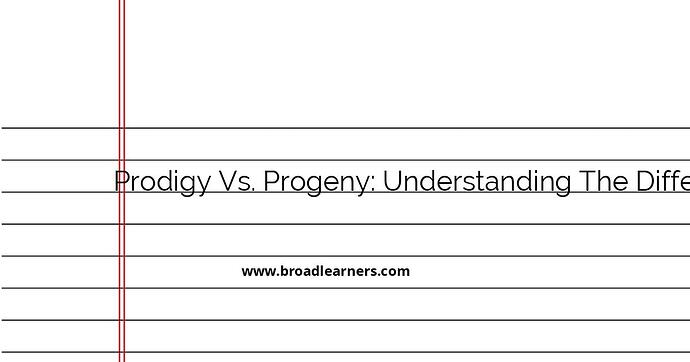In the English language, similar-sounding words can often lead to confusion. This is especially true for words like prodigy and progeny, which may sound alike to many but have vastly different meanings. In this article, we'll break down the definitions and usage of each word, accompanied by examples to help you understand the distinctions clearly.
- Prodigy
-
The term prodigy is used to describe a young person who possesses extraordinary talent or ability. This word implies a remarkable level of skill in a particular field, such as music, art, mathematics, or science, often at an early age.
Example Usage:
"Mozart was a child prodigy; he began composing music at the age of five."
In this example, Mozart's exceptional musical talent at a very young age classifies him as a prodigy.
- Progeny
-
On the other hand, the word progeny refers to the descendants or offspring of an individual or group. It is more commonly used to describe biological descendants, but can also refer to the result of a creative endeavor.
Example Usage:
"The scientist's groundbreaking research will impact future generations, making it a true scientific progeny."
In this context, progeny refers to the scientific advancements and ideas that are the result of the scientist's work.
"The farmer took great pride in his progeny, as his children continued the family tradition of agriculture."
Here, progeny denotes the farmer's children, who are his biological descendants.
To summarize, while prodigy specifies an individual's exceptional talents or abilities often exhibited in young age, progeny pertains to one's descendants or offspring, either in a familial or metaphorical sense.
- Prodigy (noun): a person, especially a young one, endowed with exceptional qualities or abilities.
- Progeny (noun): descendants or offspring, considered collectively.
By understanding these distinctions, you can confidently use the appropriate term in your writing and conversations, ensuring clear and precise communication.
Did I miss anything? Respond below
